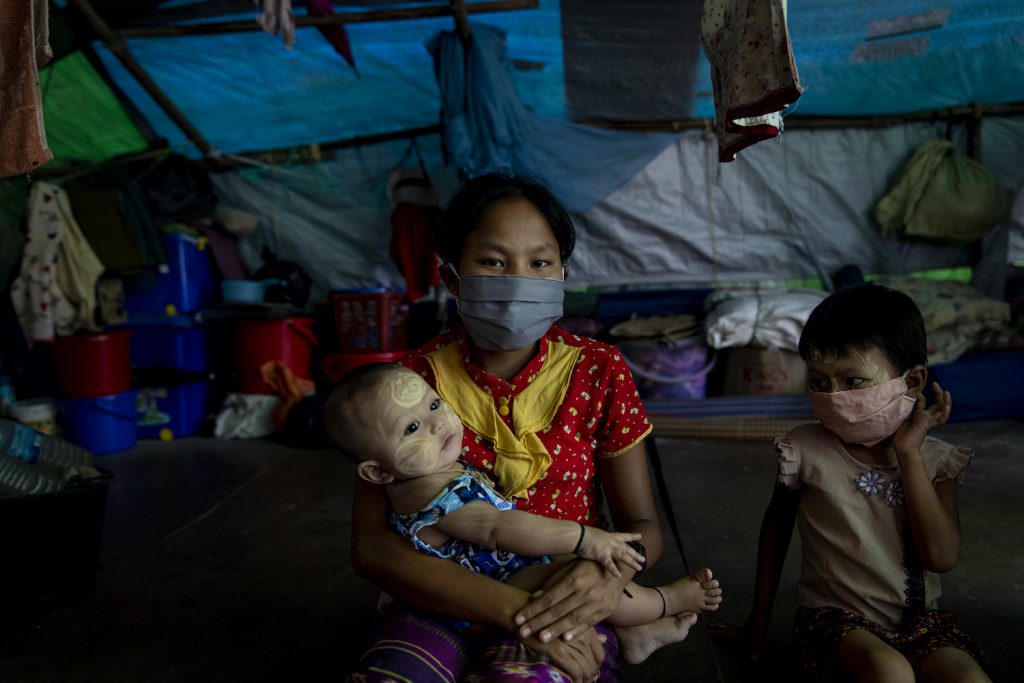Before stay-at-home orders were issued across Rakhine State, Frontier photographer Hkun Lat captured the response in Mrauk-U as the first confirmed cases were announced.
In less than two weeks, Rakhine State racked up nearly 200 new cases of COVID-19, mostly concentrated in the capital, Sittwe. In Mrauk-U, the capital of the ancient Rakhine kingdom, there have been 14 confirmed cases so far. The entire state has been under stay-at-home orders since August 26, but when Frontier visited last week, residents were just awakening to the threat of the virus.
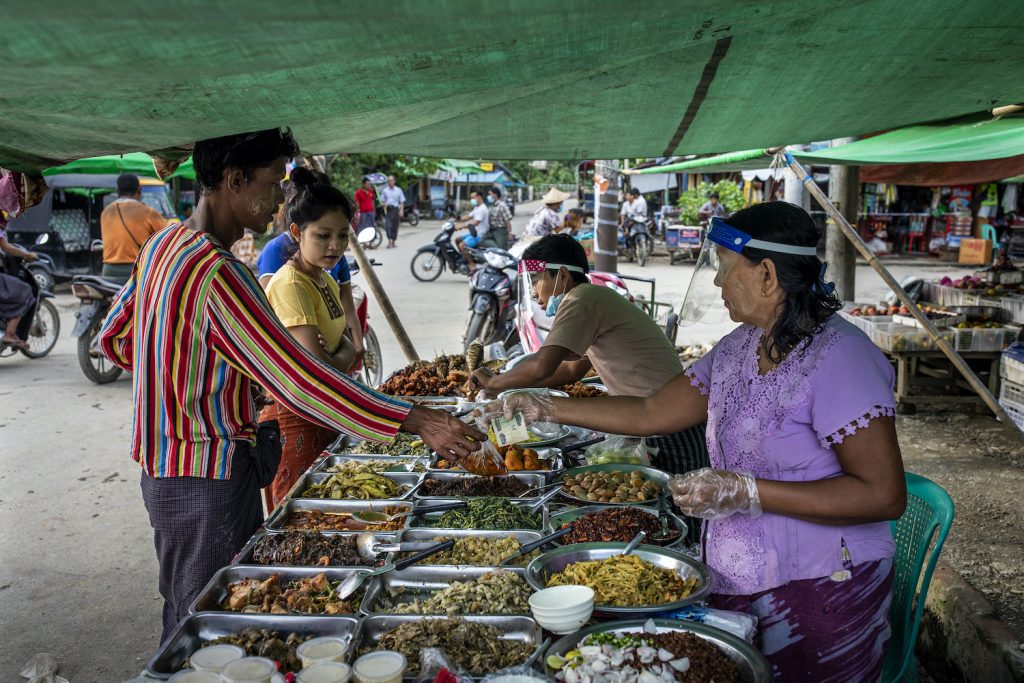
Before the first case was confirmed in Mrauk-U on August 20, people here assumed they’d dodged the pandemic; now, firefighters are hosing down streets and markets with disinfectant, and Red Cross staffers are distributing face masks and checking temperatures.
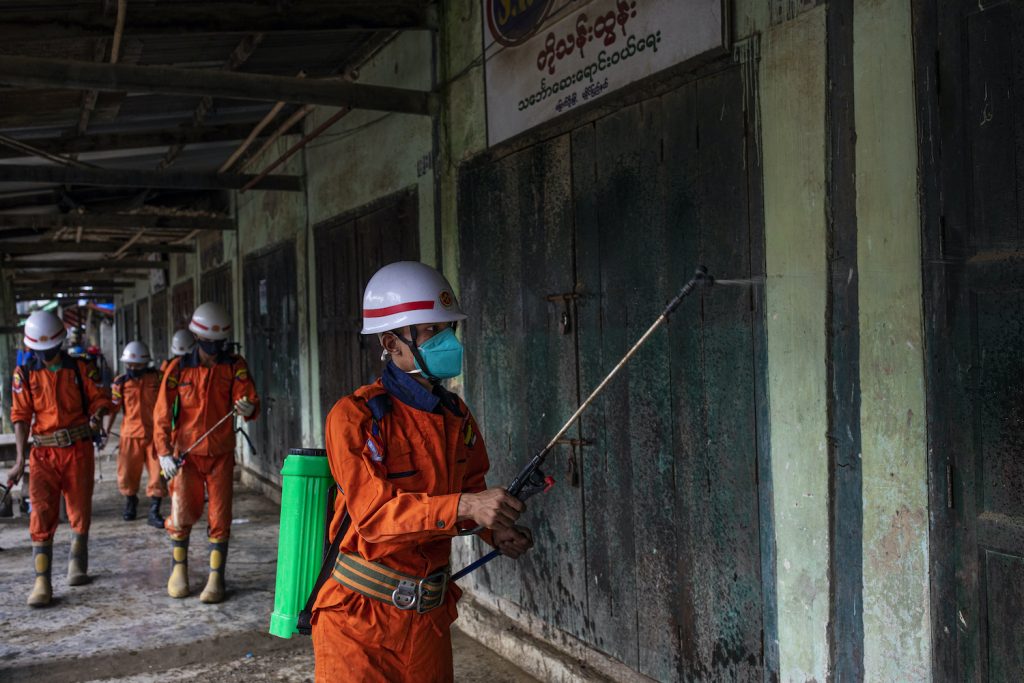
Mrauk-U’s first confirmed patient is a nurse who is believed to have recently visited three IDP camps in the township before falling ill.
Across the north of the state, tens of thousands have been displaced by the ongoing war between the Myanmar military and the Arakan Army. In Mrauk-U, as of August 5, 18,211 IDPs were living in 26 camps around the township.
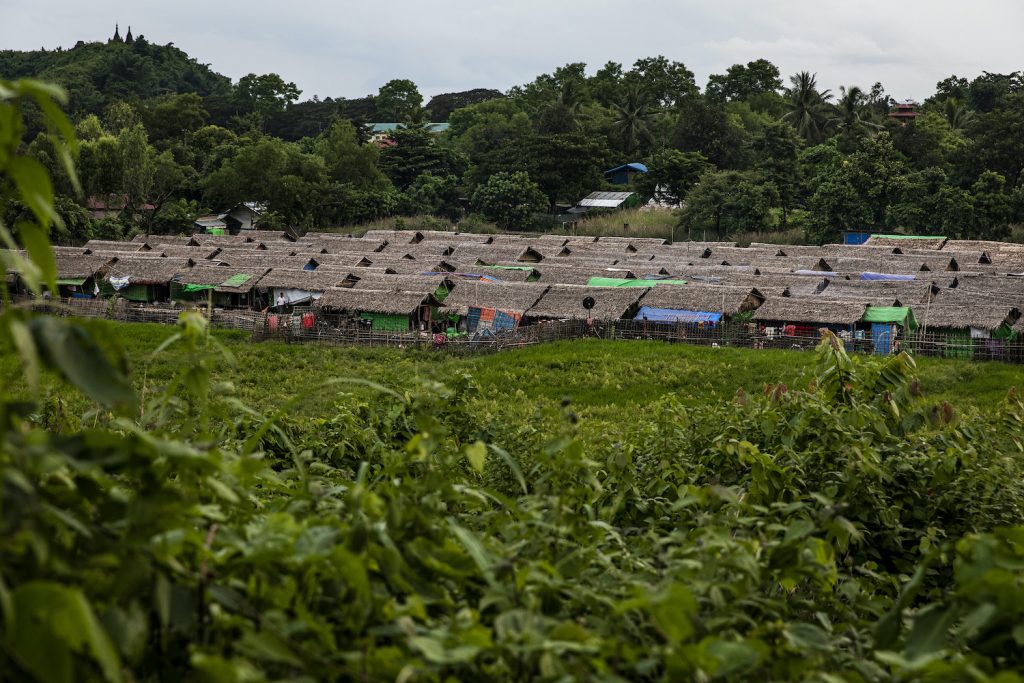
Fears of the virus spreading to these camps, where overcrowding and substandard housing make social distancing impossible, are at the top of mind for many government and civil society leaders. At Myatasaung, one of Mrauk-U’s largest IDP camps, families often share single rooms measuring 10 feet by 15 feet. In other camps, families share large halls.
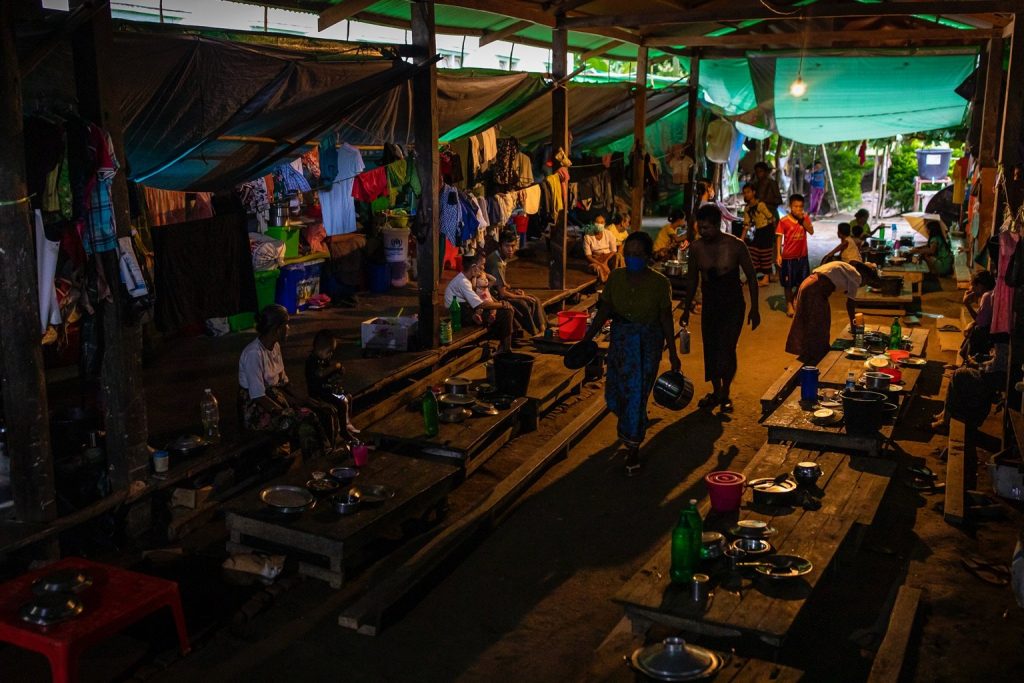
Those who had contact with the first case in Mrauk-U are being quarantined in government-run facilities within the camps, according to Dr Nay Lin Tun, who is volunteering on the COVID-19 frontline in Sittwe.
But IDP camp residents and civil society workers fear a large-scale outbreak may already be underway.
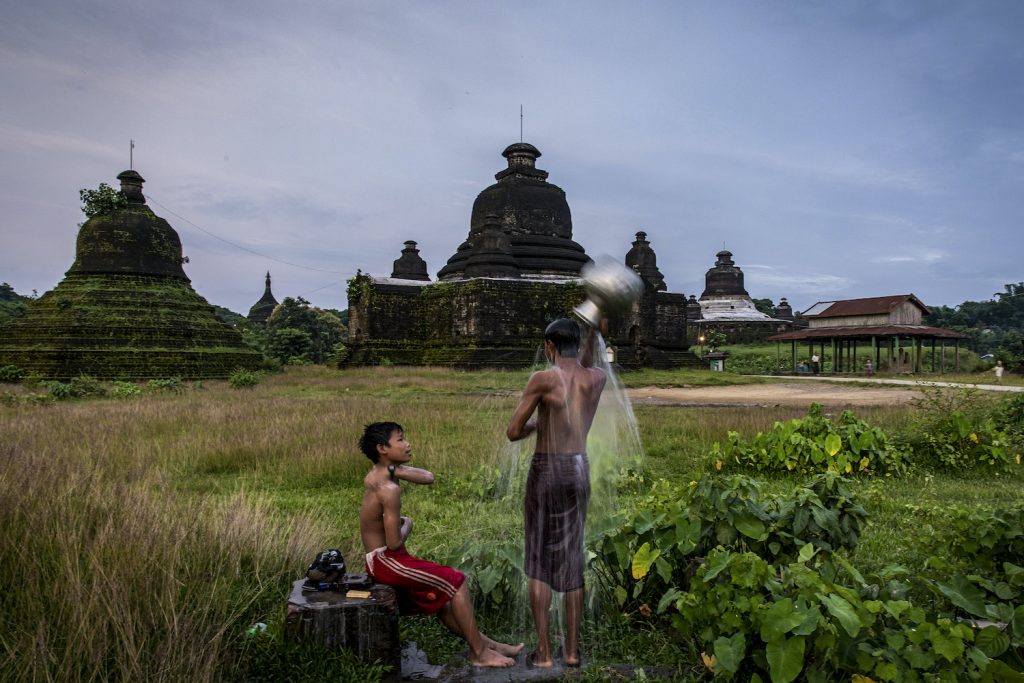
They also say the response is being hampered by lack of internet. Since June of last year, the government has ordered telecom providers to shut down internet access in eight townships in northern Rakhine and southern Chin states, including Mrauk-U. The government claims the block is aimed at AA communications, but one unfortunate side effect of the world’s longest-running internet blackout is that it is now difficult for people to access new and reliable information on the evolving COVID-19 situation.
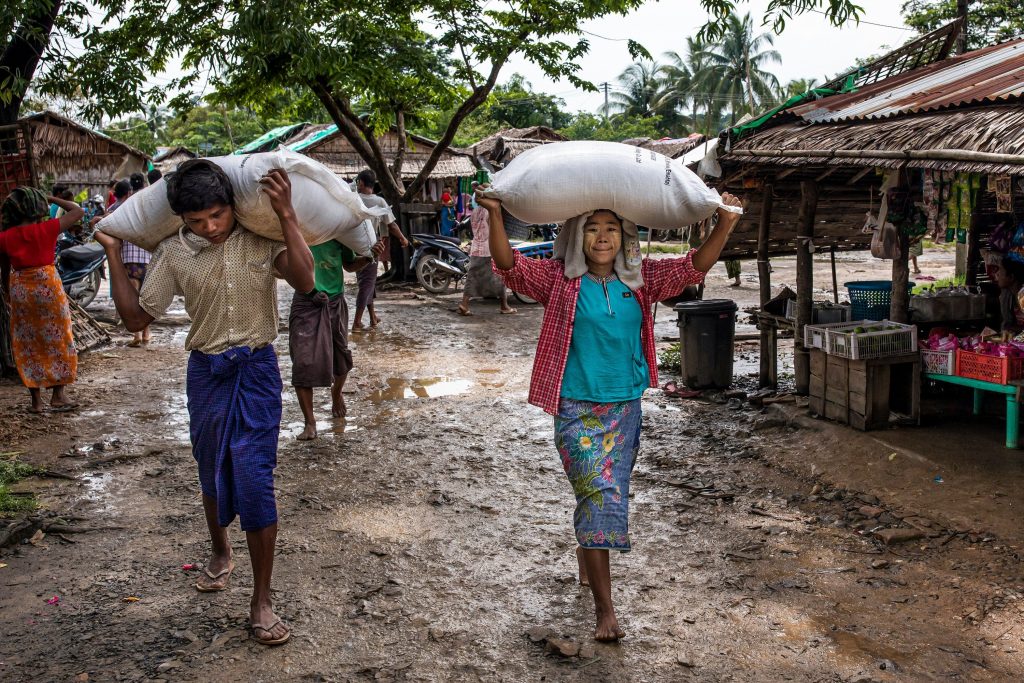
In May, full internet access was restored in Maungdaw Township and in August access was restored in the remaining townships, but only at speeds up to 2G, making most tasks impossible. Mrauk-U residents climb nearby hills to try and reach a 3G connection to get updates on the outbreak.
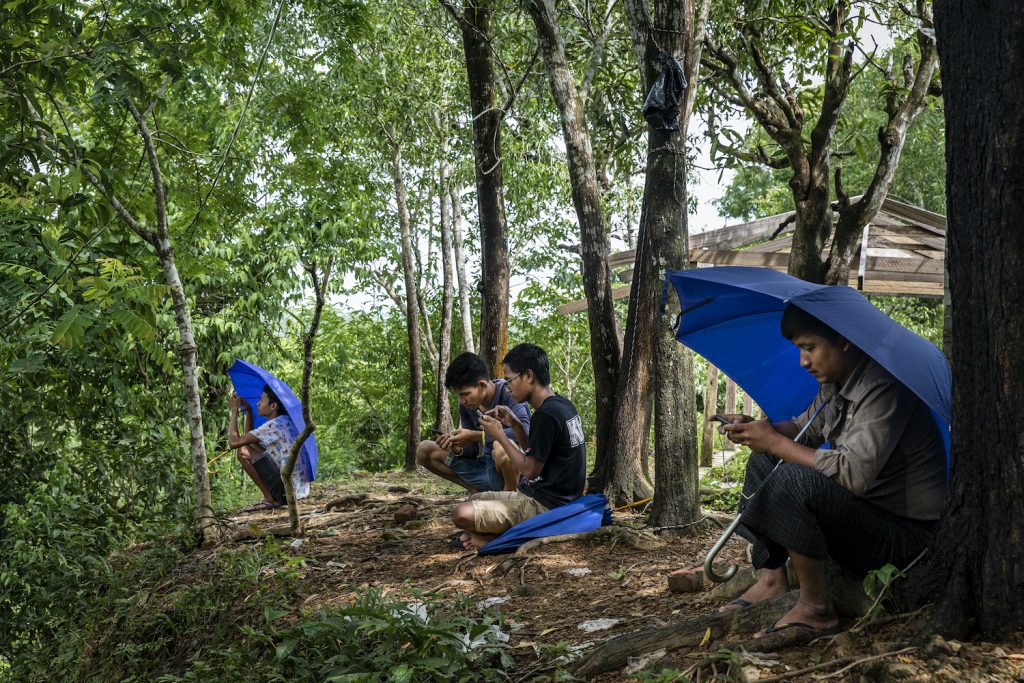
Back in Mrauk-U, restaurants have stopped offering dine-in service and nearby villagers have stopped coming to central markets. “Everyone is too scared,” the driver of a three-wheeled motorbike taxi in Mrauk-U told Frontier. NGOs have mostly ceased operating as well. Humanitarian food aid for IDPs must be left with camp staff to be distributed.
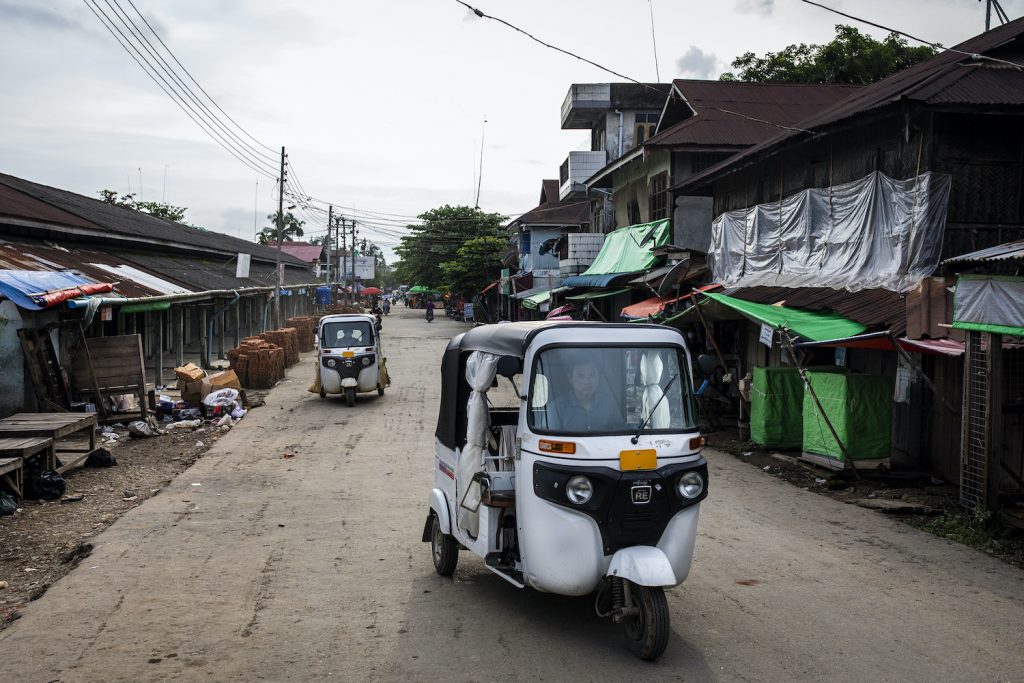
Despite growing concern and the decisive steps taken at local and national-level government agencies, not everyone was following mandates and guidelines. When Frontier visited last week, the streets were quieter but they were not empty, and masks were not yet ubiquitous.
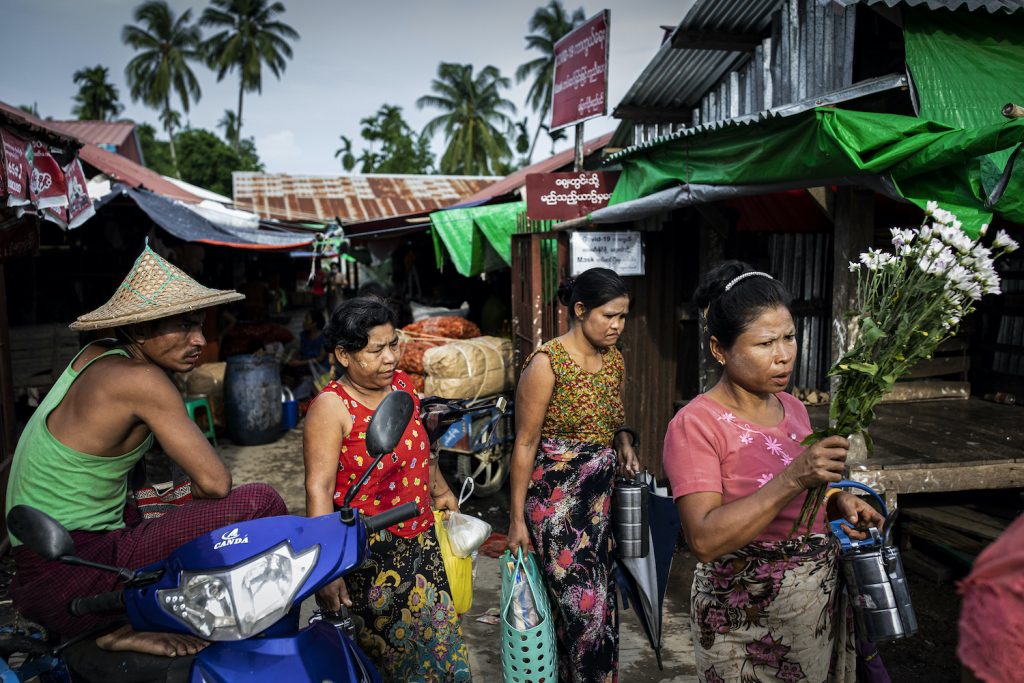
“We are very worried that the situation might get worse,” said U Ba Nyunt, a member of Mrauk-U’s civil society-led Committee for COVID-19 Pandemic Protection.


